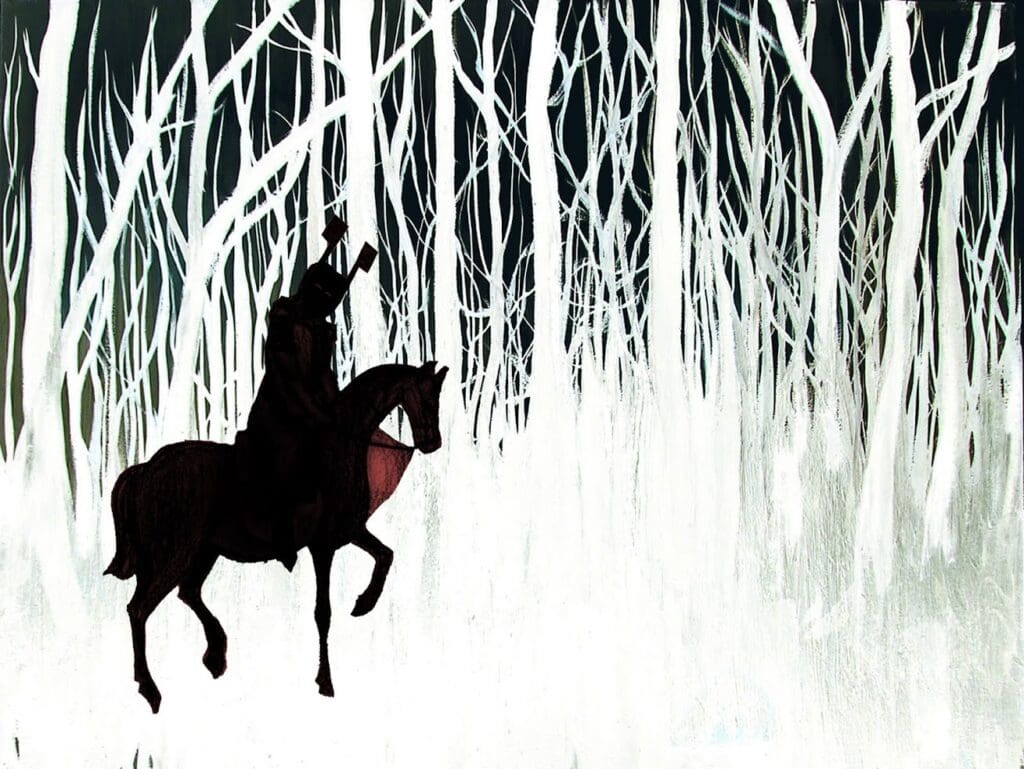[intense_heading font_size=”20″ font_color=”#00799a” font_family=”jubilat, serif” align=”center” font_weight=”500″ tag=”h6″ margin_bottom=”20″]BY ARTHUR ZAJONC, PhD[/intense_heading]

As I reflect on the last 18 months and look forward to the next year and more, the medieval romance Parzival keeps reasserting itself. Its archetypal elements seem apt metaphors for the essential work of Mind & Life.
The story of Parzival opens with our hero as a young lad who has led a remarkably sheltered life in the woods of Soltane with a protective mother. He is the original innocent who knows neither his own name nor his lineage. One day, he sees in the forest what he believes must be a vision of angels—four dazzlingly armored and powerful men, traveling astride mighty horses. Upon seeing these knights, he quickly seeks his own way to King Arthur so that he too may become as those he saw.
Parzival’s journey of knighthood—too beautiful and too long to summarize here—leads him first to his mentor Gurnemanz, who teaches him courtesy and what is socially acceptable. His further adventures take Parzival to the Grail castle of Amfortas, the grievously wounded Grail King. It’s this part that I want to highlight.
Amfortas is the keeper of the miraculous chalice Jesus Christ used at the Last Supper, the same cup that caught his blood at the crucifixion. The Grail, of course, has since become an iconic Christian symbol for enlightenment, transformation, and transcendence.
Parzival’s hidden destiny is tied to that of the Grail and Amfortas, whose court is resplendent and unsettling to the newly courteous young man. Amfortas bears in anguish an unhealable wound, caused by a broken spear lodged permanently inside his body. The wound is gruesome, festering, and incapacitating, but it is never fatal; in the presence of the Grail, which nourishes all present, Amfortas is sustained until the new Grail King can be named. This is his curse.
As anyone would be, Parzival is aware of the wound—its grisliness can’t be overlooked—and yet, raised to be deferential and to not ask too many questions, Parzival “tactfully” avoids the subject. Instead, he experiences the wonders of the castle and the Grail, as well as his host, all the while ignoring the source and subject of Amfortas’s pain and suffering.
The Grail King, on the other hand, waits for the words that prophecy has foretold will release him from this lifelong curse. Words that, shockingly, no one who has encountered him has yet asked: “What ails thee?”
It is not giving away anything to say that on that night, Parzival is also too “polite” to ask and fails to supply the Grail King’s deliverance.
The next morning, the young knight awakens to a castle in ruins. There are no marvels to this place; it bears no resemblance to the sumptuous beauty of the night before. It has become what T.S. Eliot called a “wasteland.” Courtesy and good behavior are not enough.
Upon seeing the devastation, Parzival finds that he himself has begun to suffer. He is not wounded physically, but a spiritual longing consumes him. That longing leads him to undergo what modern parlance might term an existential crisis—one that commits him to a lifelong, knightly quest: to rediscover the wounded King, the Grail, and in so doing relieve both their sufferings—the physical and spiritual—by finally speaking those three words.
I won’t spoil the ending here, but since becoming Mind & Life’s president nearly two years ago, there is a reason I have turned to this story again and again. The allegory of Parzival offers a powerful analogy to our mission.
At its foundation and in its highest incarnation, Mind & Life’s purpose is to ask this fundamental question: “What ails thee?”
Consider for a moment the profundity of that question and what its answers might illuminate: not just suffering, but its causes. Not just pain, but its balm. Not just problems, but their solutions.
The idea the Parzival legend provokes is moving, and it has never been more necessary than now. Enlightenment, transformation, transcendence—and their more earthbound qualities of love, kindness, and peace—arise from truly asking and therefore truly knowing what ails us and those around us.
There is a deep commitment at Mind & Life to understanding what an ethical life can and should mean outside of religion. Religion has traditionally been the home for the ethical and moral dimensions of our lives, but as our society becomes more secular, there is an urgent need for the ethical life to be reimagined and reasserted in order to adequately take on global problems, all of which are moral problems. Our educational system, the environment, our economies, even our internal lives. . . we believe the only way to embed ethics deeply enough so that it animates all human interaction is to develop that audacious human capacity of compassion. The instinct to ask, “What ails thee?”
Mind & Life is about this innate capability. It is about finding the Parzival within each of us. If we go deep into that tender, miraculous “castle” within our own skulls, we can cultivate our mind, changing it from a place that can hinder our resplendent humanity to one that calls it, and us, home.

